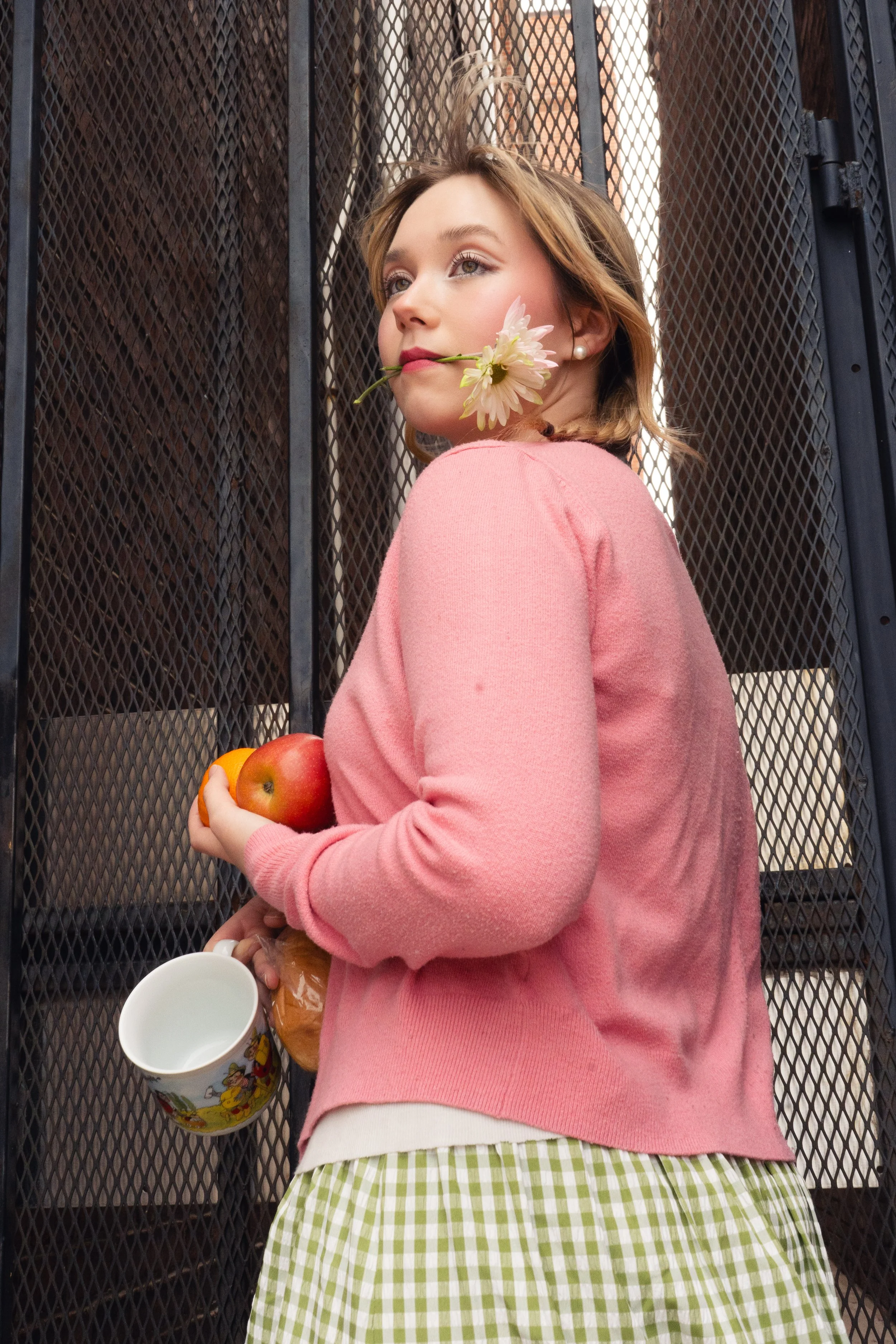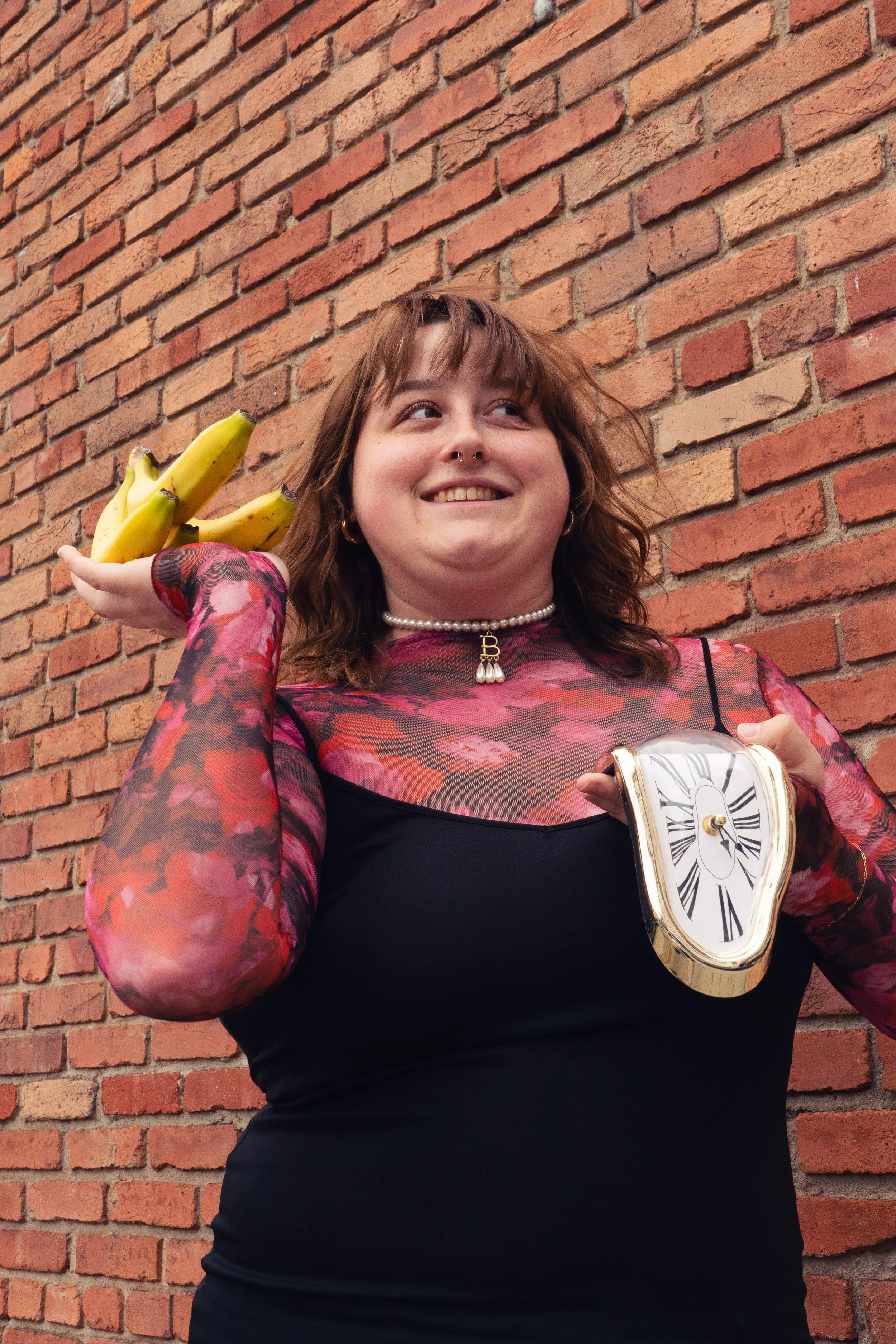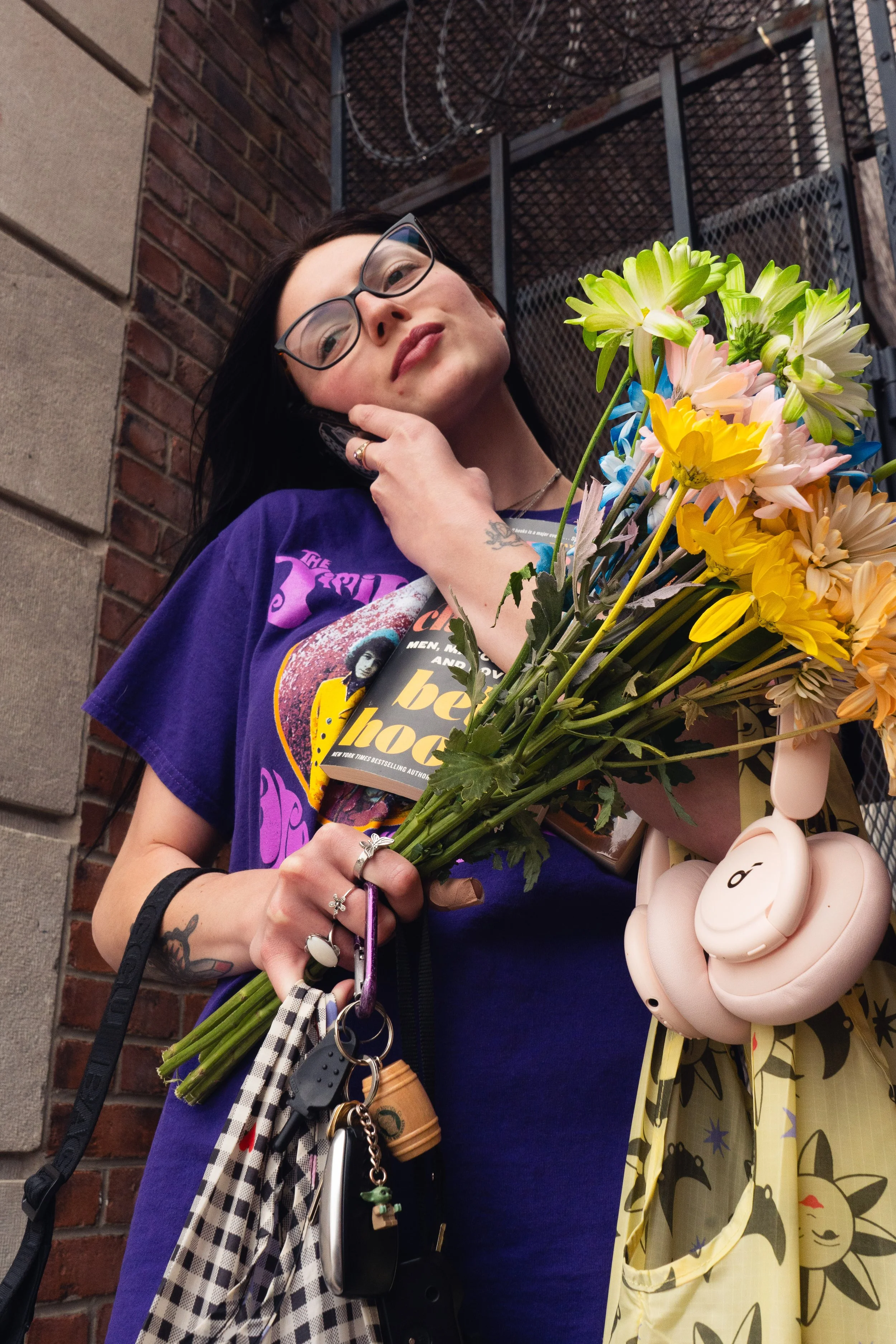More Than Just a Handful: What it Really Means When Women Hold Things
Written by Lilly Templeton
Photography by Liz Garcia
Modeled by Halle Cory, Caroline Sluss, Reese Tackett, and Lilly Templeton
The Strength We Carry: The Unseen Weight Women Hold Every Day
For generations, women have been carrying the weight of the world, literally and figuratively. From societal pressures and household responsibilities to physical objects and emotional labor, women have to juggle it all. They do so, often without recognition, without compensation, and sometimes without even being thanked. This strength, though admirable, is born not from choice but from necessity.
Women have always had to hold things: books and briefcases, babies and burdens, expectations and emotions. And many of those things are invisible — such as the unspoken rules of how to “be a lady,” the pressure to smile through discomfort, or the unrelenting demand to be everything to everyone. We carry tradition and rebellion, hope and trauma, ambition and exhaustion all in the same breath.
Women Holding Things
This powerful image of women constantly holding finds haunting resonance in Maira Kalman’s poem and illustrated book “Women Holding Things.” In it, Kalman presents portraits of women, some named, others anonymous, each grasping something: a tray, a dog, a flag, a baby, a memory. Some items are physical, others metaphysical. There’s a woman holding her tongue. Another holds grudges. One holds her mother’s hand.
The work is not just whimsical or observational — it’s deeply symbolic. Each “thing” a woman holds becomes a metaphor for the layered responsibilities, emotions, and societal roles women navigate daily. Kalman captures what the women in your life might be holding right now: grief, groceries, patience, power, heartbreak.
What “Women Holding Things” does so masterfully is that it calls attention to the unseen — it makes the unseen, seen. It asks us not just to notice what women are physically balancing, but to pay attention to the emotional and psychological loads they’re managing. It’s a quiet call to witness and to wonder why so much is expected to be silently carried.
The Myth of Having It All
Women are expected to seamlessly balance multiple roles: caregiver, professional, partner, daughter, friend, advocate, and more. We’ve been told we ‘can have it all,’ but rarely yet never been told we don’t have to do it all. And if one dares to express her frustration or fatigue, it is often met with phrases like “Well, you fought for this,” as if the fight for equality was a request to be overworked, underpaid, and underappreciated.
Let’s be clear: we aren’t complaining. We’re demanding recognition. We’re asking for partnership, equity, and most importantly, relief. We are tired of being praised for our strength, while being denied the support that would allow us to rest.
The Hidden Labor
While all women shoulder heavy burdens, women of color often face an even harsher reality, moving through the world under the dual weight of racism and sexism. Their struggles are not always visible, yet they are constant. Fighting for recognition in spaces that overlook them, pushing against systems that were never built with them in mind, and carrying expectations that demand endless resilience without offering protection or praise. Their labor, both physical and emotional, often goes unseen, and their voices are too often drowned out, even within movements meant to uplift women. To truly honor the strength women possess, we must recognize that women of color carry a deeper, heavier load, and that their pursuit of justice, opportunity, and rest remains an even steeper climb.
This labor is often invisible; domestic work, emotional labor, and caregiving aren’t just side jobs — they’re full-time commitments. Yet they’re seen as ‘women’s work,’ and dismissed as if they don’t count. But they do count. They always have.
Kalman illustrates this beautifully through her portraits — each woman composed and poised, yet quietly overwhelmed. The woman holding everything might be smiling, but the subtext is exhaustion. Her arms may be full, but no one is offering to take anything from her hands.
Balancing More Than Objects
When you see a woman holding five things at once, know that she’s holding more than just physical items. She’s holding her breath, her boundaries, her dreams, and often her pain. She’s balancing deadlines with daycare pickups, ambition with anxiety, strength.
The expectation that women should be inherently good at multitasking or that we’re ‘naturally nurturing’ has trapped us. It’s made it harder for us to ask for help without guilt or judgment. It’s made self-care feel selfish. And it’s made burnout feel like a badge of honor.
But Kalman reminds us that we are more than what we carry. One woman in her poem simply holds her face in her hands. Another holds onto a railing for balance. These images are reminders that strength doesn’t always look like stoicism — it can look like vulnerability, stillness, or letting go.
While all women shoulder heavy burdens, women of color often carry even more. They navigate not just the expectations of gender, but the layered struggles of racism, cultural bias, and systemic inequity. Their labor is often more invisible, their sacrifices more overlooked, and their strength more taken for granted. Women of color are expected to be pillars of resilience while facing barriers to opportunity, representation, and safety that others do not. Their stories are frequently erased or minimized, even within broader movements for women's rights. To truly honor the weight women carry, we must acknowledge that for many women of color, the load is doubly heavy, and the fight for recognition, justice, and rest even harder won.
Time to Share the Load
Yes, women are strong. Yes, we’re resilient. But strength shouldn’t be a sentence, and resilience shouldn’t be required every single day. We deserve the right to be soft, to ask for help, to put something down without feeling like we’ve failed.
True progress means we stop idolizing women’s ability to ‘do it all’ and start questioning why we’re still asking them to. Equity means redefining roles, redistributing responsibilities, and rejecting the myth that only women are equipped to nurture, to multitask, to carry.
So next time you see a woman juggling a million things, don’t just say, “Wow, you’re amazing.” Instead say, “How can I help?” And more importantly, mean it.
Because we’re not just carrying bags, we’re carrying the weight of centuries, and it’s time some of that weight is lifted.





